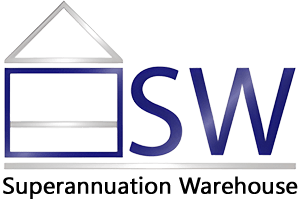Investing in shares is the most common investment choice for SMSF’s. The Trust Deed and Investment Strategy of the Fund further explain the types of shares and other investments an SMSF can invest in. These are regarded the rules of the Fund.
The Funds that Superannuation Warehouse sets up are issued with an Investment Strategy allowing for a broad range of invest options including shares. An SMSF can invest in the following types of shares:
- Listed shares – including international shares;
- Unlisted shares – can be public or private companies
Listed Shares
An SMSF can gain access to share investments in a number of ways depending on the costs and risk profile of Trustees. Shares can be purchased directly via a broker or via other mechanisms including:
A Managed Fund is sometime called a Managed Investment Scheme. In a Managed Fund, your funds are pooled with other investors. An investment manager then buys and sells shares or other investments on your behalf. One example of a Managed Fund investment is Katana Asset Management. If you are considering investing with Katana Asset Management, please visit their website here.
A Derivative is a financial contract with a value that is derived from an underlying asset. Derivatives have no direct value in and of themselves. Their value is based on the expected future price movements of their underlying asset. Derivatives are a grey area, as CFD’s are an allowable investment but margin call investments are not allowed in an SMSF as there’s a loan component attached to the product that’s not allowed in an SMSF environment.
Holding Australian company shares inside an SMSF may be attractive from a tax perspective as an SMSF has a relatively low tax rate of 15% – particularly where the shares held are in companies that pay fully franked dividends. Note that’s if a Fund is in pension phase, it is taxed at NIL and franked dividends will be refunded to the SMSF – indeed a golden opportunity.
Audit considerations:
- If shares are directly held by the SMSF with a Holder Identification Number (HIN), the auditor will need this information to perform share testing e.g confirm the existence and ownership of shares held by the SMSF.
- If shares (foreign and domestic shares) are invested via investment platforms such as Stake, Margaret Street or Netweath, the auditor will require a copy of the GS007 report of the relevant platform to confirm there are internal controls in place and they operate effectively throughout the year to rely upon the portfolio statement generated by the systems. If this report is not available, it will be up to the auditor’s judgement whether they would qualify Part A of the audit report. Please see here for more information on Part A qualifications.
Unlisted Shares
An SMSF can also purchases shares in a private company or an unlisted public company. When an SMSF invests in a private company, it may carry higher levels of complexity.
For instance, care needs to be taken to ensure that the private company is not considered to be a related entity to the SMSF. An investment in a company might be considered related to your SMSF if you and/or your associates control the company. Once a company is considered a related party, this investment will be treated as an in house asset of the Fund and as a result, the Fund’s ability to invest into it will be limited to 5% of the SMSF’s assets. For more info on the in-house asset rules, please follow this link.
Robo Advice
For a more diversified investment portfolio, an option is to use robo advice. For more information on robo advice, please see the our Robo advice page.
Brokerage fees
When purchasing shares, an SMSF will be required to pay brokerage fees.
We include the brokerage fees as part of the purchase price of the shares. This is then included in the cost base of the shares. This approach is in line with the ATO guidance regarding tax obligations when purchasing shares. To view the ATO guidance, please click on the button below:
For some general information on taxation in an SMSF, please click on the button below:


